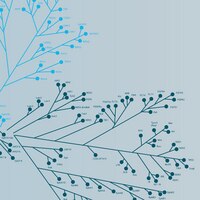14-734 Sigma-AldrichFGFR1 (V561M) Protein, active, 10 µg
Active, N-terminal GST-tagged, recombinant, human FGFR1 amino acids 456 -765 containing the V561 mutation. For use in Enzyme Assays.
More>> Active, N-terminal GST-tagged, recombinant, human FGFR1 amino acids 456 -765 containing the V561 mutation. For use in Enzyme Assays. Less<<Productos recomendados
Descripción
| Replacement Information |
|---|
| References |
|---|
| Product Information | |
|---|---|
| Presentation | Presented as a frozen solution in 50mM Tris/HCl pH 7.5, 300mM NaCl, 0.1mM EGTA, 0.03% Brij 35, 270mM sucrose, 1mM benzamidine, 0.2mM PMSF, 0.1% 2-mercaptoethanol. |
| Quality Level | MQ100 |
| Applications | |
|---|---|
| Application | Active, N-terminal GST-tagged, recombinant, human FGFR1 amino acids 456 -765 containing the V561 mutation. For use in Enzyme Assays. |
| Key Applications |
|
| Physicochemical Information |
|---|
| Dimensions |
|---|
| Materials Information |
|---|
| Toxicological Information |
|---|
| Safety Information according to GHS |
|---|
| Safety Information |
|---|
| Packaging Information | |
|---|---|
| Material Size | 10 µg |
| Transport Information |
|---|
| Supplemental Information |
|---|
| Specifications |
|---|
| Global Trade Item Number | |
|---|---|
| Número de referencia | GTIN |
| 14-734 | 04053252403682 |
Documentation
FGFR1 (V561M) Protein, active, 10 µg Ficha datos de seguridad (MSDS)
| Título |
|---|
FGFR1 (V561M) Protein, active, 10 µg Certificados de análisis
| Cargo | Número de lote |
|---|---|
| FGFR1 (V561M), active - 1613386 | 1613386 |
| FGFR1 (V561M), active - D7BN045DU | D7BN045DU |
| FGFR1 (V561M), active - D7BN045U | D7BN045U |
| FGFR1 (V561M), active - D7BN045U-B | D7BN045U-B |
Referencias bibliográficas
| Visión general referencias | Pub Med ID |
|---|---|
| Characterization of a conserved structural determinant controlling protein kinase sensitivity to selective inhibitors. Blencke S, Zech B, Engkvist O, Greff Z, Orfi L, Horvath Z, Keri G, Ullrich A, Daub H. Chemistry and Biology, 5:691-701 (2004) 2004 | 15157880
 |
| Expression and purification of human recombinant GST-FGF receptor-1. Homann S, Schacher B, Zumstein-Mecker S, Fabbro D, Bold G, Ferrari S. Journal of Biotechnology, 86:51-8 (2001) 2001 | 11223144
 |








